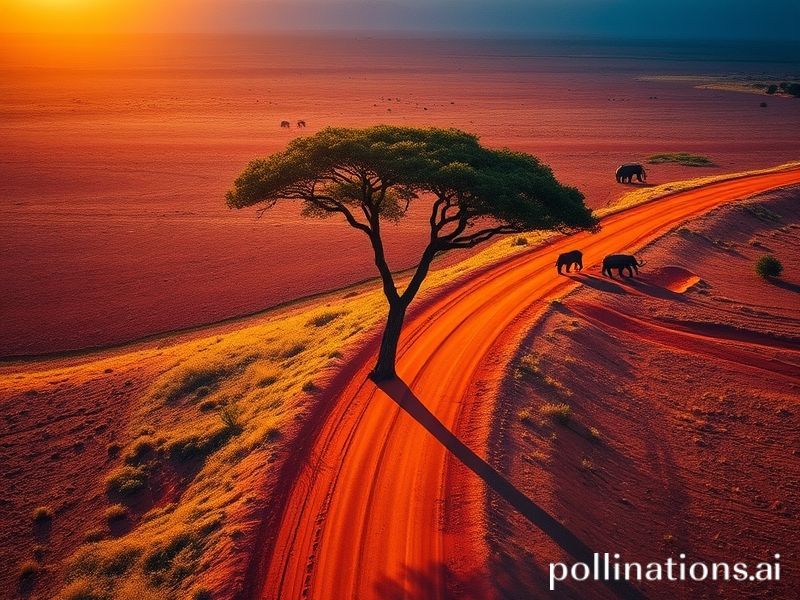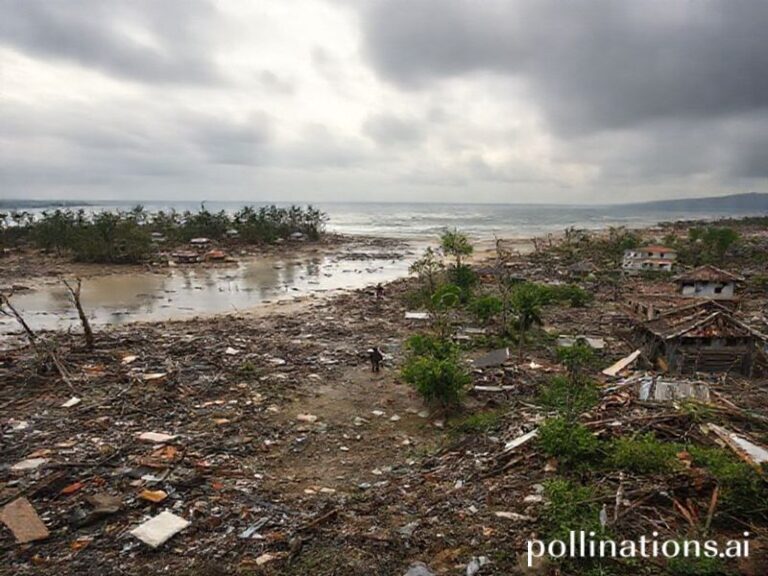Africa: The Continent That Won’t Fit Your PowerPoint Slide—Global Stakes, Local Punchlines
The Continent That Refuses to Be a Soundbite
By Our Correspondent, Somewhere Between Duty-Free and Doubt
Nairobi–Africa, that sprawling ellipsis of 54 nations and 1.4 billion plot twists, is once again the world’s favorite Rorschach test. Peer at it from Davos and you see the green future—lithium brine and cobalt seams humming beneath solar farms that look suspiciously like spreadsheets. Glance from Beijing and it’s the last mile of the Belt & Road, a very expensive gravel driveway with mineral rights attached. From Washington it’s either a “counter-China hedge” or, depending on the cable channel, a humanitarian screensaver of starving children accessorized by flies. The continent endures these projections with the weary patience of a cinema screen that has learned not to argue with the projector.
Take last week’s African Climate Summit in Kenya. Delegates arrived in chartered jets to announce—wait for it—a carbon-credit bazaar that would let European firms keep belching guilt-free while Maasai herders get paid to watch grass grow. Everyone applauded the circularity of it all, except the herders, who were not invited to the after-party. Meanwhile, the EU’s new “anti-deforestation” law means Ghanaian cocoa farmers must now geo-tag every shrub or face exile from Belgian chocolate hearts. Bureaucrats call this “global governance”; farmers call it Instagram for trees.
The joke, of course, is that Africa is already the planet’s most effective carbon sink—home to the Congo Basin, which inhales more CO₂ than the entire German economy exhales after Oktoberfest. Yet the going rate for this planetary lung is about $5 per credit on voluntary markets, roughly the price of a Berlin latte. Somewhere, P.T. Barnum’s ghost is updating his LinkedIn.
Economically, the continent has become the world’s fastest-growing consumer market, a phrase consultants pronounce with the same moist reverence they once reserved for BRICs. Multinationals parachute in, armed with focus groups that ask penetrating questions like “Would you prefer your instant noodles spicy or existential?” They discover that Kenyans buy milk in sachets, Nigerians distrust anything without jollof on the label, and Senegalese teenagers will mortgage their kidneys for 5G. The resulting strategy decks are masterpieces of PowerPoint anthropology, soon forgotten in the back of a Dubai WeWork.
Geopolitically, Africa is the new Switzerland—everyone’s neutral ground until it isn’t. Russia ships grain to Somalia while discreetly mining Facebook for coup influencers. Turkey sells drones to Ethiopia, then opens a mosque in Mogadishu for brand consistency. France retreats from the Sahel under a hail of Wagner memes, leaving behind a trail of abandoned military bases that will make excellent TikTok backdrops for the next junta. The only consistent winner is the global arms industry, which has discovered that AK-47s are the one commodity Africans are allowed to import duty-free.
And yet, beneath the cynicism, the continent keeps drafting alternate scripts. Lagos builds its own Silicon Lagoon where startups raise millions to solve problems the government finds too small to ignore. Rwanda experiments with drone blood delivery, a service the American Midwest still regards as witchcraft. Ghana’s Year of Return lures the diaspora back with promises of dual citizenship and traffic jams so nostalgic they bring a tear to every Brooklyn-born returnee.
Western pundits keep predicting Africa’s “breakout decade,” apparently unaware that decades here are counted in dog years: everything ages faster, especially hope. The breakout already happened; it just didn’t look like the Harvard Business Review sketch. It looked like mobile money in a Nairobi slum, like Sudanese protestors toppling a dictator with WhatsApp and sheer audacity, like Congolese surgeons operating by phone light when the generator dies. These moments rarely trend on Twitter because they refuse the prescribed narrative arc—no white saviors, no swelling violins, just humans improvising their way through structural absurdity.
So, dear reader, when the next glossy report lands on your desk—perhaps titled “Africa Rising 3.0: This Time It’s ESG Compliant”—remember the continent’s oldest joke: the West spent centuries extracting Africa’s resources, and now it wants to invoice the continent for the hole. The punchline writes itself, but the bill never does.







